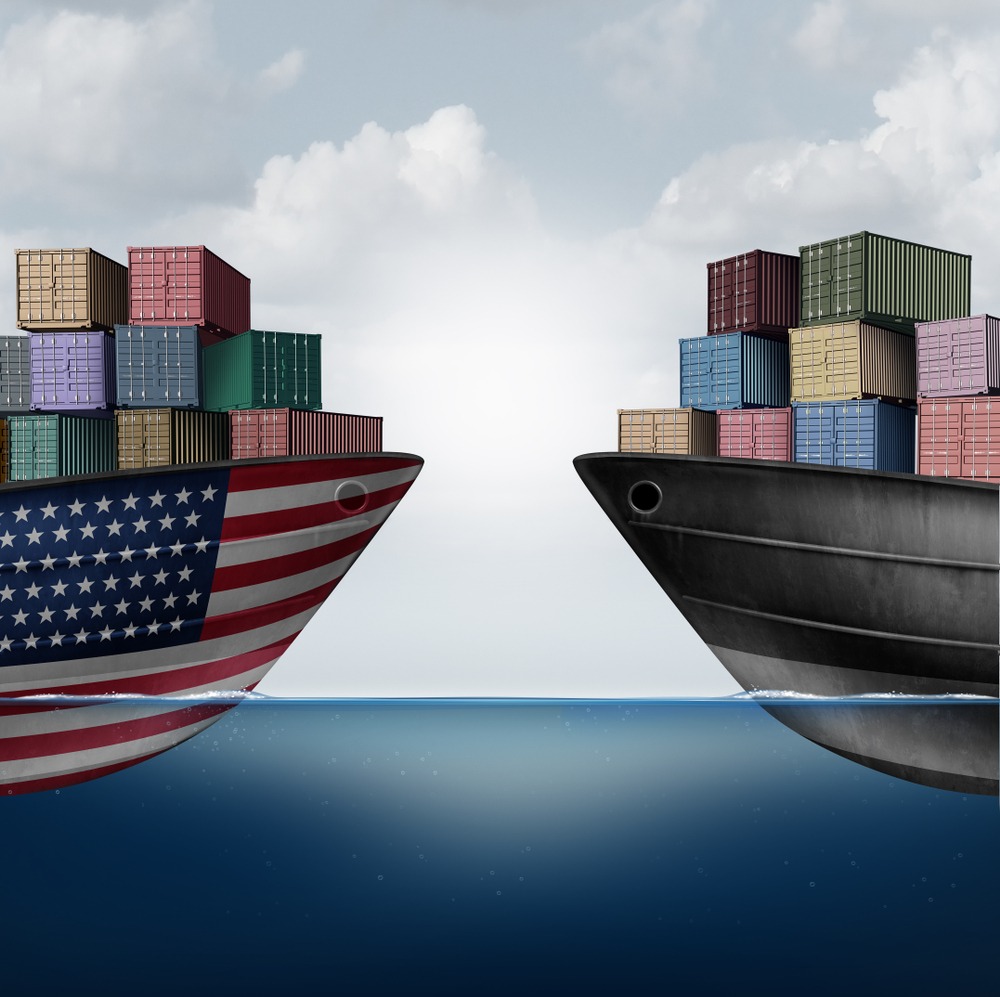‘Good Chance’ of US-UK Trade Deal, Says Vance—But at What Cost?
There’s a “good chance” a new trade deal between the US and UK is on the horizon, according to US Vice-President JD Vance. Speaking in an interview with UnHerd on Monday, Vance said the two countries were “certainly working very hard” on a post-tariff trade agreement, especially in light of the chaos that’s followed America’s recent trade shakeup.
That “shakeup” of course refers to President Donald Trump’s surprise move on April 2nd to impose sweeping tariffs across the globe. It wasn’t a small policy pivot—it was a trade policy earthquake. A 10% “baseline” tariff was slapped on all imports from key allies, including the UK and France. No exemptions. No warnings. Just a bold new trade wall.

Since then, the global stock market has been wobbling like a Jenga tower on its last leg. Trillions were wiped from US stock value in the days that followed. And while there are some signs of recovery, the financial world is still holding its breath.
But apparently, there’s light at the end of the tunnel—at least between the US and UK. UK government sources have hinted that talks with the US are going “well” and that the new deal would likely be about more than just lifting tariffs. Expect a broader agreement covering goods, services, and possibly even digital trade.
RELATED: Global Markets Rise as Trump Announces Temporary Tariff Exemptions.
In his UnHerd interview, Vance explained why a UK deal might come together more easily than one with, say, Germany.
“It’s a much more reciprocal relationship,” he said, drawing a comparison to Germany’s lopsided trade balance with the US. “They export a lot to us, and they’re pretty tough on a lot of American [exports].”
Fair point. But it’s worth remembering that this entire disruption began with the US upending decades of stable trade with its closest allies.

Since the rollout of the so-called “Liberation Day” tariffs, the Trump administration has made a few targeted exemptions, likely to ease market pressure. But Vance made it clear this isn’t a short-term ploy—it’s a long game.
“Any implementation of a new system is going to make financial markets jittery,” he said. “What we want is to see lower trade deficits, really across the board.”
While Vance played trade diplomat in the interview, he also got personal—responding to past leaked private chats in which some top US officials made less-than-friendly remarks about Europe.
“I love European people,” he said. “I’ve said repeatedly that I think that you can’t separate American culture from European culture.”
He also took a moment to stress what’s become a bit of a mantra for this White House: Europe needs to start pulling its own weight when it comes to defense.
RELATED: Trump Exempts Smartphones and Laptops from Tariffs in Sudden Tech Reprieve.
“It’s not in Europe’s interest, and it’s not in America’s interest, for Europe to be a permanent security vassal of the United States,” Vance said.
And of course, no geopolitical conversation is complete these days without Ukraine and Russia entering the chat.
Vance addressed growing criticism that the US is getting too cozy with Vladimir Putin’s government, saying again that understanding isn’t the same as endorsing.

“That doesn’t mean you morally support the Russian cause, or that you support the full-scale invasion,” he said. “But you do have to try to understand what are their strategic red lines, in the same way that you have to try to understand what the Ukrainians are trying to get out of the conflict.”
His comments came just one day after Russia launched its deadliest attack on Ukraine this year—killing at least 35 people. In response, Ukrainian President Volodymyr Zelensky invited Donald Trump to visit Ukraine before making any sort of deal with Russia.
Conclusion - A Complete Mess
It’s encouraging to hear there’s a “good chance” of a US-UK trade deal coming together, and of course, we all want strong alliances and fair markets. But let’s be real—the same people who threw global trade into disarray are now presenting themselves as the heroes swooping in to “fix” it. This whole mess didn’t need to happen in the first place. The tariffs, the market chaos, the diplomatic strain—it’s all been self-inflicted. And now we’re supposed to applaud them for patching it up? Please. Necessary or not, let’s hope this deal brings actual benefits—and not just political optics.










